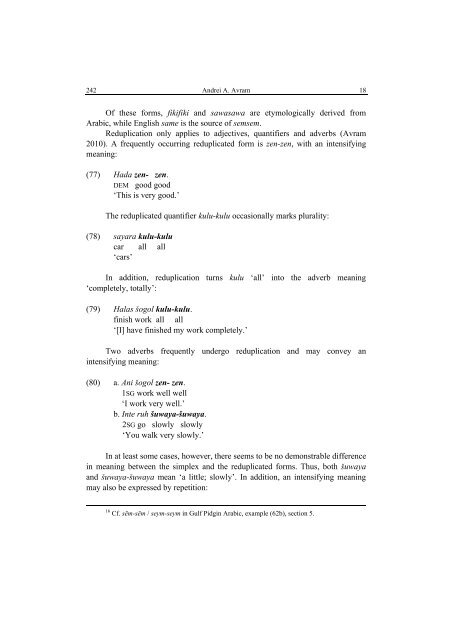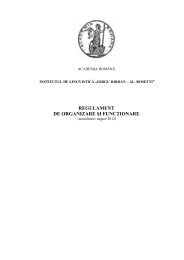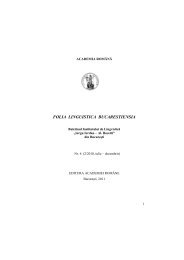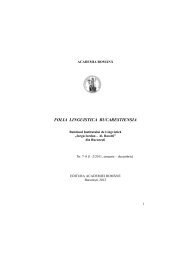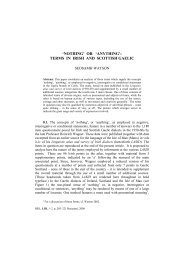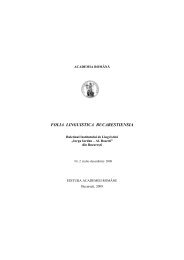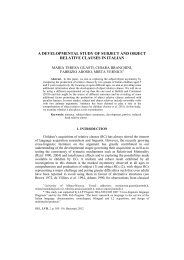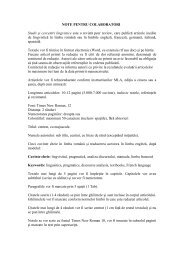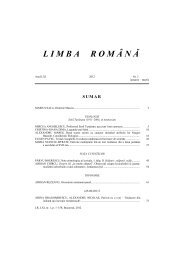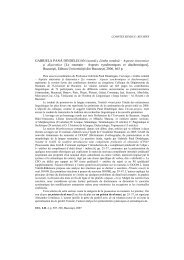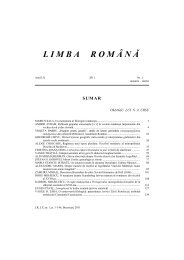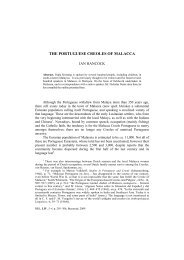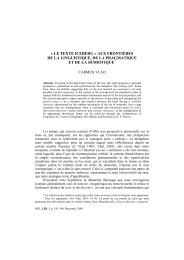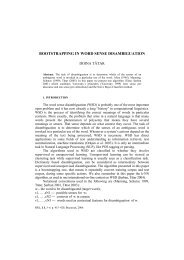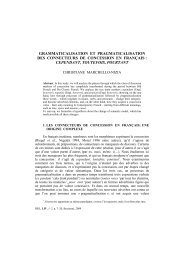PSEUDO-REDUPLICATION, REDUPLICATION AND REPETITION ...
PSEUDO-REDUPLICATION, REDUPLICATION AND REPETITION ...
PSEUDO-REDUPLICATION, REDUPLICATION AND REPETITION ...
Create successful ePaper yourself
Turn your PDF publications into a flip-book with our unique Google optimized e-Paper software.
242Andrei A. Avram 18Of these forms, fikifiki and sawasawa are etymologically derived fromArabic, while English same is the source of semsem.Reduplication only applies to adjectives, quantifiers and adverbs (Avram2010). A frequently occurring reduplicated form is zen-zen, with an intensifyingmeaning:(77) Hada zen- zen.DEM good good‘This is very good.’The reduplicated quantifier kulu-kulu occasionally marks plurality:(78) sayara kulu-kulucar all all‘cars’In addition, reduplication turns kulu ‘all’ into the adverb meaning‘completely, totally’:(79) Halas šogol kulu-kulu.finish work all all‘[I] have finished my work completely.’Two adverbs frequently undergo reduplication and may convey anintensifying meaning:(80) a. Ani šogol zen- zen.1SG work well well‘I work very well.’b. Inte ruh šuwaya-šuwaya.2SG go slowly slowly‘You walk very slowly.’In at least some cases, however, there seems to be no demonstrable differencein meaning between the simplex and the reduplicated forms. Thus, both šuwayaand šuwaya-šuwaya mean ‘a little; slowly’. In addition, an intensifying meaningmay also be expressed by repetition:16 Cf. sēm-sēm / seym-seym in Gulf Pidgin Arabic, example (62b), section 5.


